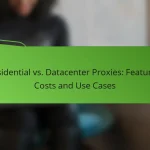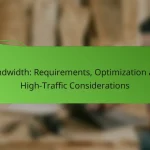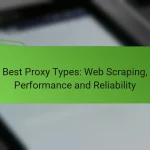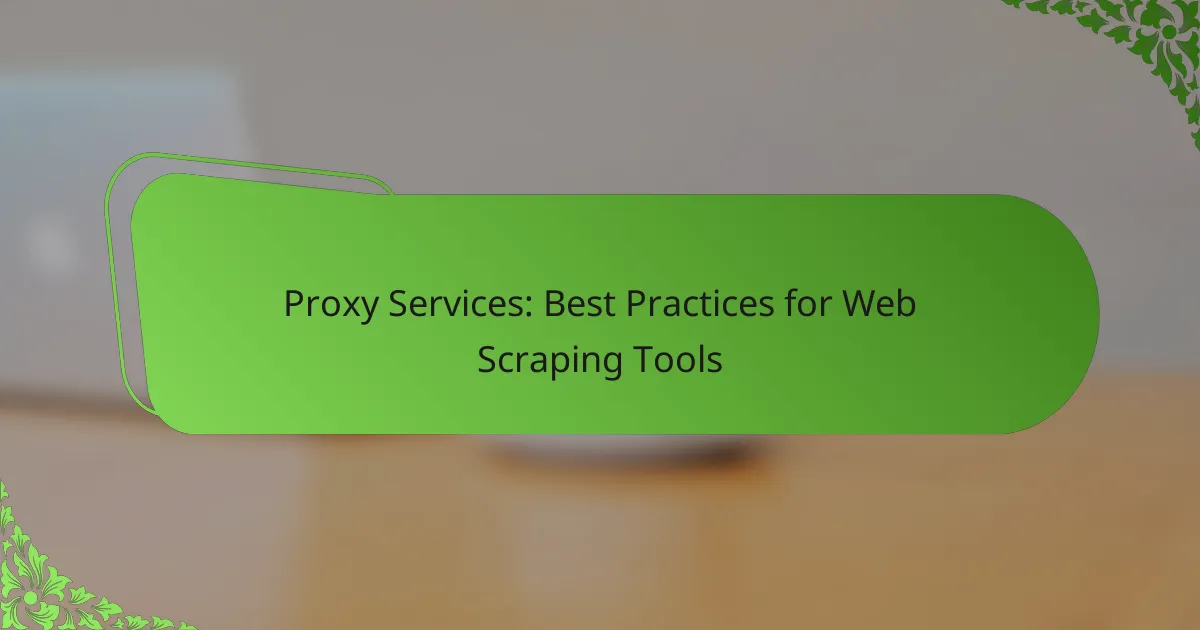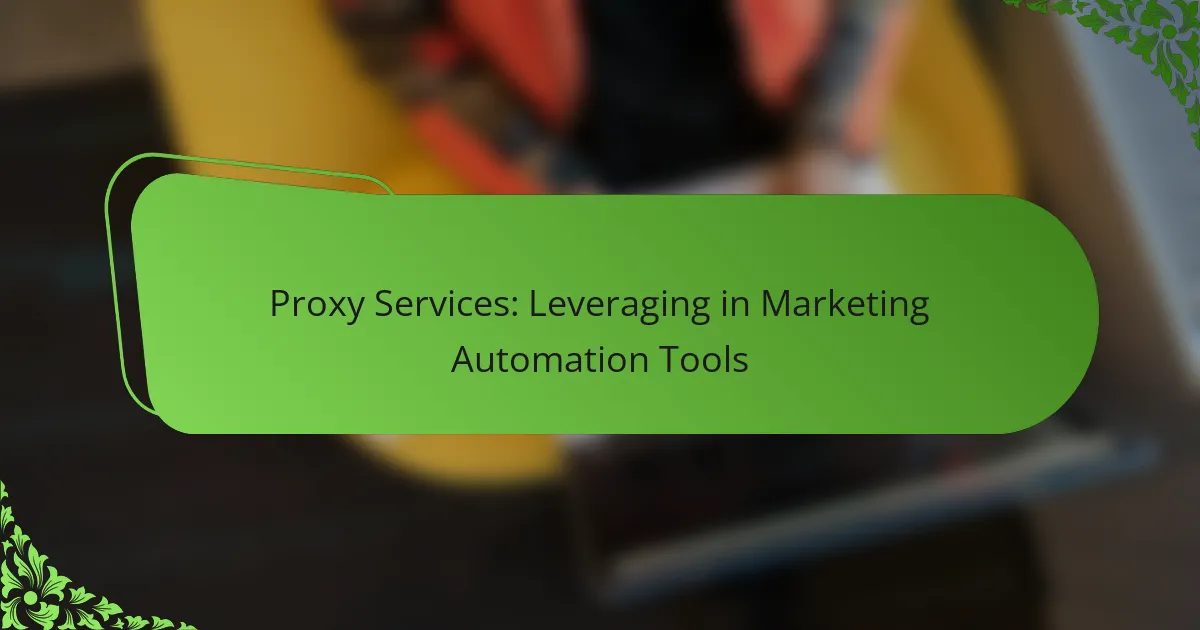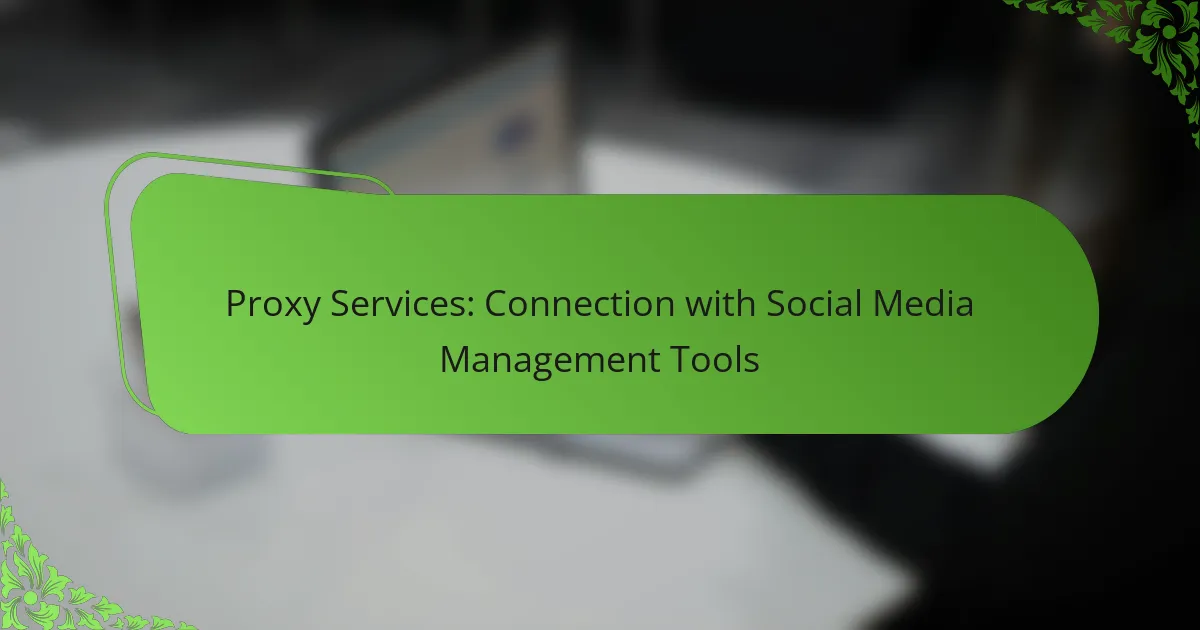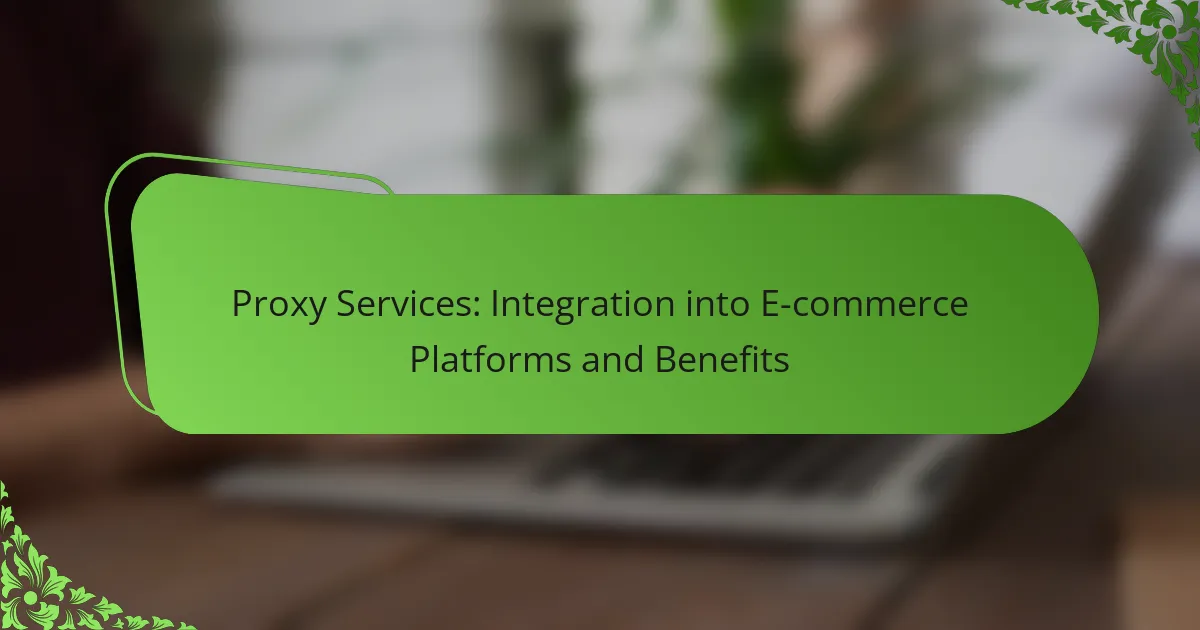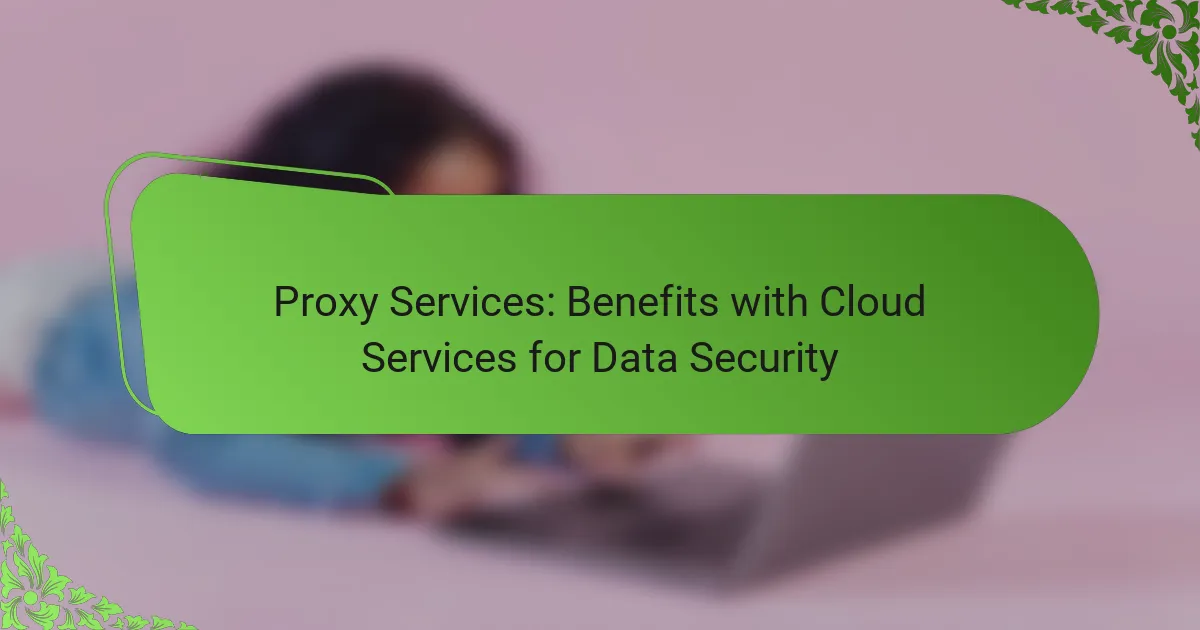Proxy services play a crucial role in enhancing web scraping efficiency by providing anonymity and bypassing restrictions. By masking the user’s IP address, these services allow for seamless access to multiple web pages, improving data collection without the risk of being blocked. When choosing a proxy service, it’s essential to consider features such as IP rotation, connection speed, and customer support to optimize your scraping efforts.
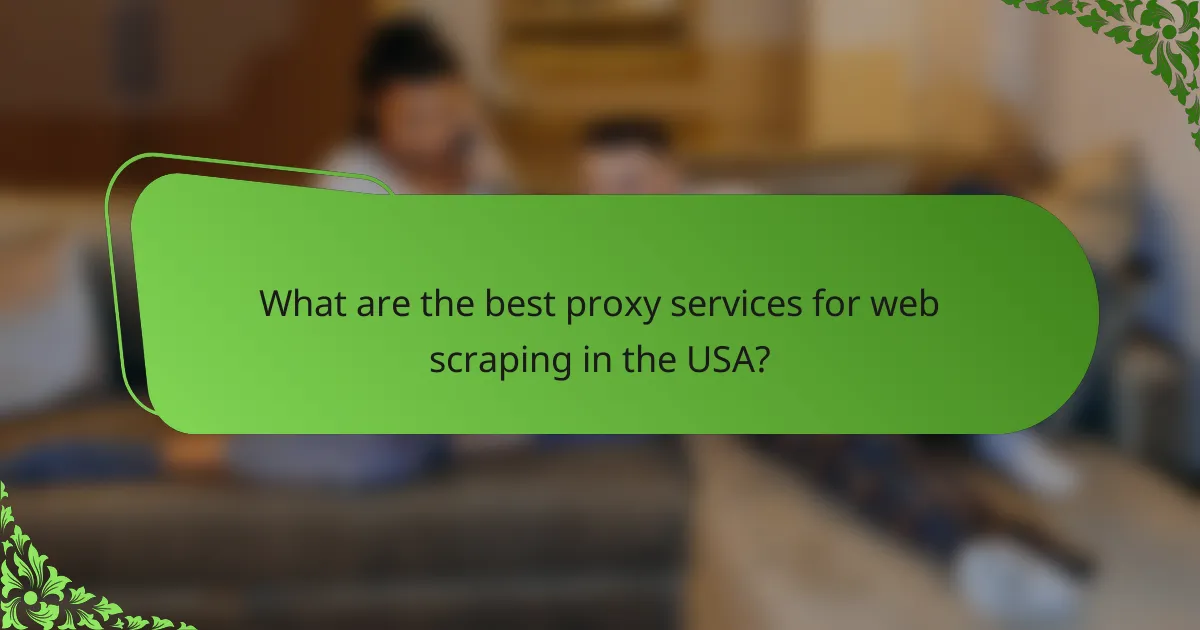
What are the best proxy services for web scraping in the USA?
The best proxy services for web scraping in the USA offer reliable performance, a wide range of IP addresses, and user-friendly features. These services help bypass restrictions and ensure anonymity while scraping data from various websites.
Bright Data
Bright Data, formerly known as Luminati, is a leading proxy service that provides access to millions of residential IPs. It is known for its extensive network and advanced features, such as session control and real-time data collection.
When using Bright Data, consider its pricing structure, which can be on the higher side, but the quality of service often justifies the cost. Users can choose between pay-as-you-go or subscription models, depending on their scraping needs.
Smartproxy
Smartproxy is a popular choice for web scraping, offering a user-friendly interface and a large pool of residential and data center proxies. It is particularly well-suited for small to medium-sized businesses looking for cost-effective solutions.
With Smartproxy, users can benefit from features like rotating IPs and unlimited bandwidth. Their pricing is competitive, making it an attractive option for those who need reliable proxies without breaking the bank.
Oxylabs
Oxylabs provides a robust proxy service with a focus on high-quality residential IPs and excellent customer support. It is ideal for enterprises that require large-scale web scraping capabilities.
One of Oxylabs’ standout features is its dedicated account managers, who assist users in optimizing their scraping strategies. The pricing is premium, but the service’s reliability and performance can be worth the investment for serious data collectors.
GeoSurf
GeoSurf offers a unique approach to web scraping with its extensive geo-targeting options. It provides access to a vast network of residential IPs across multiple countries, including the USA.
This service is particularly useful for businesses needing localized data. GeoSurf’s pricing is tiered based on the number of locations and data usage, allowing users to select a plan that fits their specific requirements.
Storm Proxies
Storm Proxies is known for its simplicity and affordability, making it a great option for beginners in web scraping. It offers both residential and data center proxies, catering to a variety of scraping tasks.
With Storm Proxies, users can expect straightforward pricing and easy setup. However, the network size is smaller compared to competitors, which may affect performance during peak times. It’s a solid choice for those starting out or with lighter scraping needs.
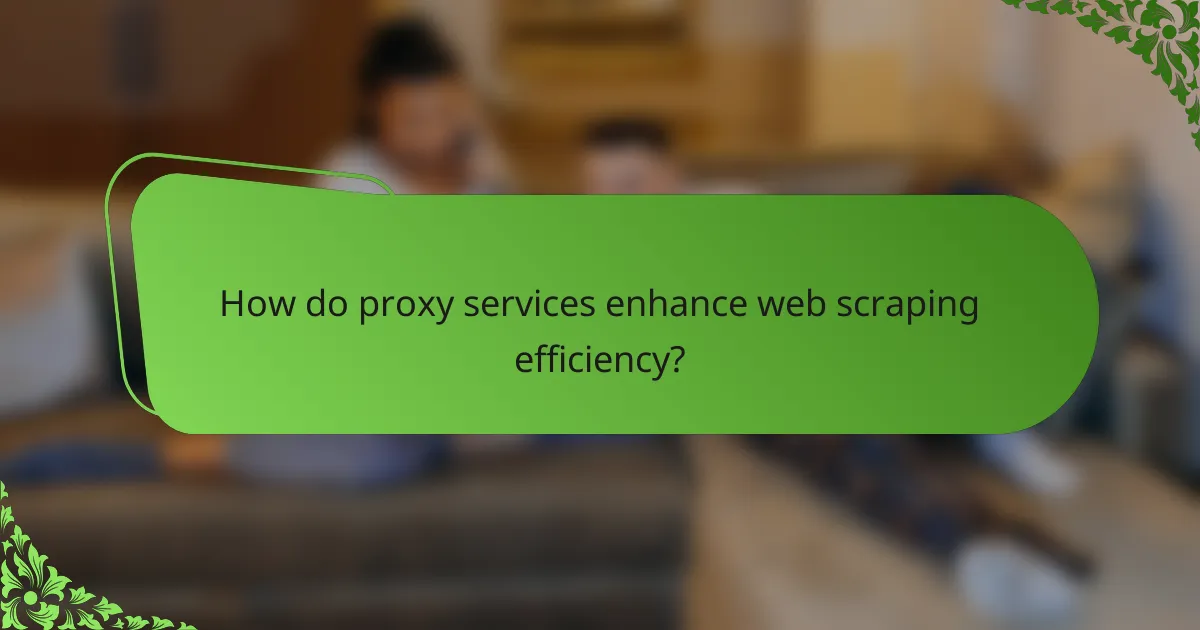
How do proxy services enhance web scraping efficiency?
Proxy services significantly improve web scraping efficiency by masking the user’s IP address, allowing for more effective data collection without being blocked. They facilitate seamless access to multiple web pages while maintaining anonymity and bypassing various restrictions.
Improved anonymity
Using proxy services enhances anonymity by routing requests through different IP addresses, making it difficult for websites to trace activity back to a single user. This is crucial for web scraping, as many sites implement measures to detect and block scraping attempts.
To maximize anonymity, consider rotating proxies that frequently change IP addresses. This approach can help avoid detection and reduce the risk of being blacklisted by target websites.
Bypassing geo-restrictions
Proxy services enable users to bypass geo-restrictions by providing access to IP addresses located in different countries. This is particularly useful for scraping content that is only available in specific regions, such as localized pricing or regional news articles.
When selecting a proxy for this purpose, ensure it has a diverse range of IPs from the desired locations. This can help in accessing content that may be restricted based on geographic location.
Load balancing
Load balancing is essential for efficient web scraping, as it distributes requests across multiple proxies to prevent overwhelming any single IP address. This not only enhances scraping speed but also reduces the risk of triggering rate limits imposed by target websites.
Implementing a load balancing strategy can involve using a dedicated proxy management tool that automatically distributes requests. This ensures that scraping operations run smoothly and efficiently, even during high-demand periods.
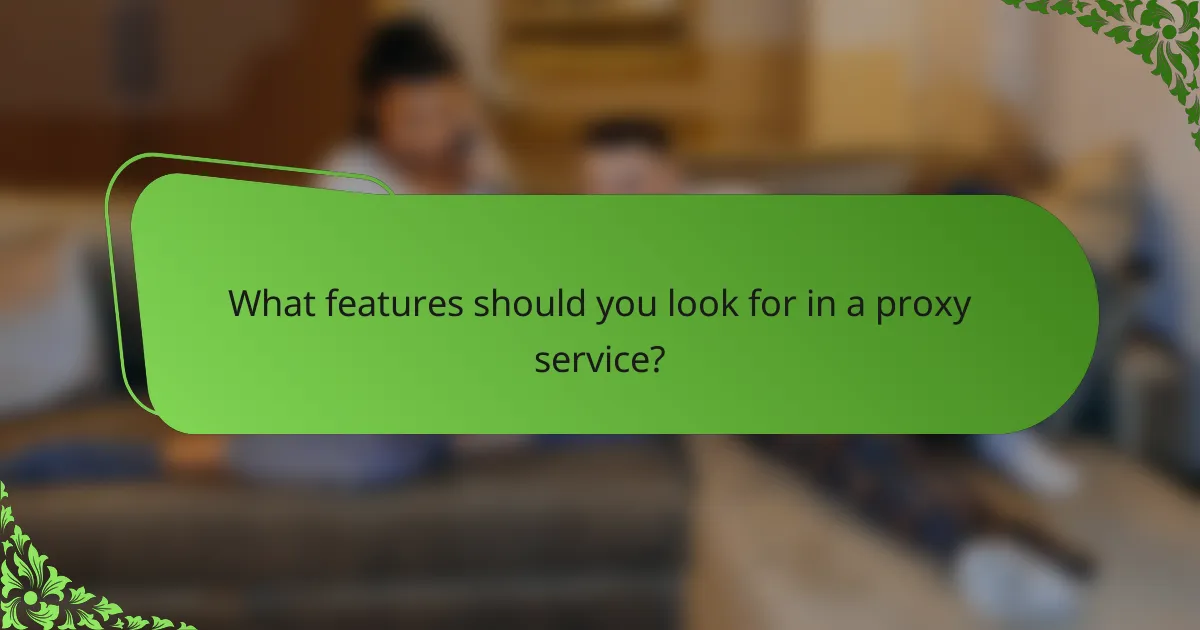
What features should you look for in a proxy service?
When selecting a proxy service for web scraping, focus on features that enhance performance and reliability. Key aspects include IP rotation, connection speed, customer support, and pricing models, all of which significantly impact the effectiveness of your scraping efforts.
IP rotation
IP rotation is crucial for web scraping as it helps prevent IP bans and throttling by websites. A good proxy service should offer automatic IP rotation, allowing you to switch between multiple IP addresses seamlessly during your scraping sessions. Look for services that provide a large pool of IPs from diverse geographical locations to enhance anonymity and access.
Consider services that allow you to customize rotation settings, such as rotating IPs after a set number of requests or at specific time intervals. This flexibility can help you tailor your scraping strategy to the target website’s behavior.
Connection speed
Connection speed directly affects the efficiency of your web scraping tasks. A high-speed proxy service ensures that data is retrieved quickly, minimizing the time spent waiting for responses. Look for services that advertise low latency and high bandwidth to support your scraping needs.
Test the connection speeds of different proxy providers before committing. Many offer trial periods or speed tests, which can help you gauge their performance under real-world conditions.
Customer support
Reliable customer support is essential when using proxy services, especially if you encounter issues during scraping. Choose a provider that offers multiple support channels, such as live chat, email, and phone support, to ensure you can get help when needed.
Check for user reviews regarding the responsiveness and helpfulness of the support team. A proactive support service can save you time and frustration, especially during critical scraping operations.
Pricing models
Understanding the pricing models of proxy services is vital for budgeting your web scraping projects. Common pricing structures include pay-as-you-go, subscription-based, and tiered plans based on usage. Evaluate which model aligns best with your scraping frequency and volume.
Compare the costs of different services while considering the features they offer. Sometimes, a slightly higher price can be justified by better performance, more IPs, or superior customer support. Always look for transparency in pricing to avoid unexpected charges.
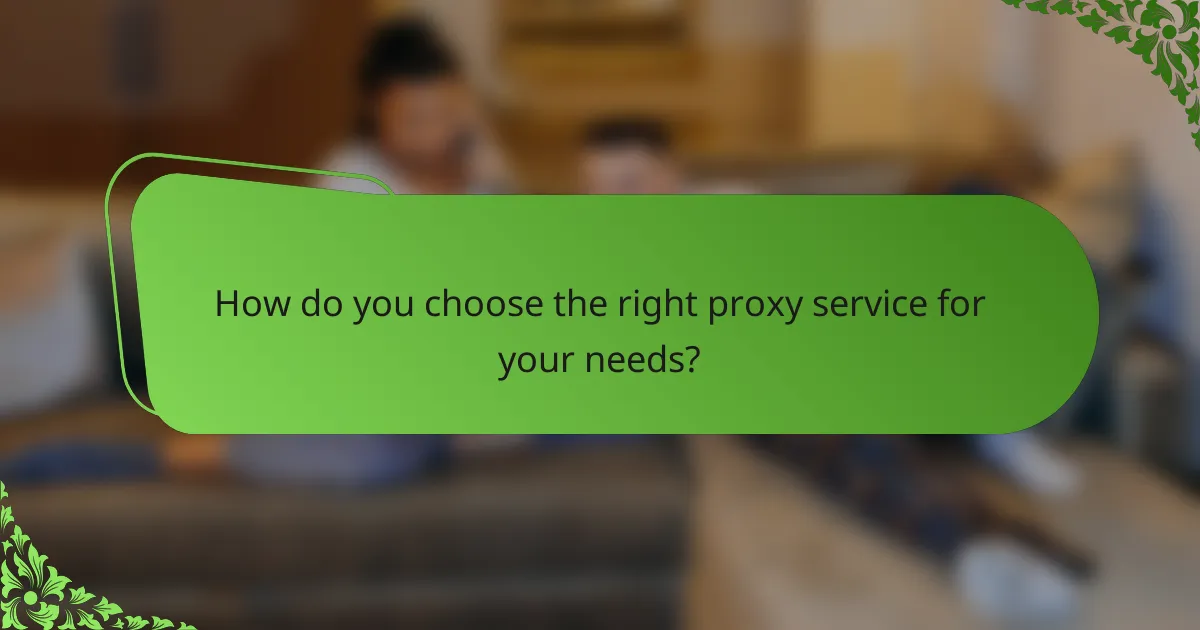
How do you choose the right proxy service for your needs?
Choosing the right proxy service for web scraping involves assessing your specific requirements, including the volume of data you need to scrape and the websites you are targeting. A well-selected proxy service can enhance your scraping efficiency and help you avoid blocks from target sites.
Assess your scraping volume
Understanding your scraping volume is crucial in selecting a proxy service. If you plan to scrape large amounts of data, look for services that offer high bandwidth and a large number of IP addresses to distribute requests effectively. For smaller projects, a basic plan with fewer resources may suffice.
Consider your scraping frequency as well. If you need to scrape data continuously, opt for a service that supports unlimited requests or offers a pay-as-you-go model to avoid unexpected costs.
Evaluate target websites
Different websites have varying levels of security and restrictions against scraping. Analyze the target sites to understand their anti-bot measures, such as CAPTCHAs or IP bans. Choose a proxy service that provides residential IPs if you are targeting sites with strict anti-scraping policies, as these IPs are less likely to be blocked.
Additionally, check if the proxy service offers geo-targeting options. This feature allows you to scrape content that may be restricted based on location, which can be particularly useful for accessing region-specific data.
Consider integration capabilities
Integration capabilities are essential for ensuring that your proxy service works seamlessly with your web scraping tools. Look for services that offer easy integration with popular scraping frameworks and libraries, such as Scrapy or Puppeteer.
Furthermore, assess the API documentation and support provided by the proxy service. A well-documented API can save you time during setup and troubleshooting, making your scraping process more efficient.
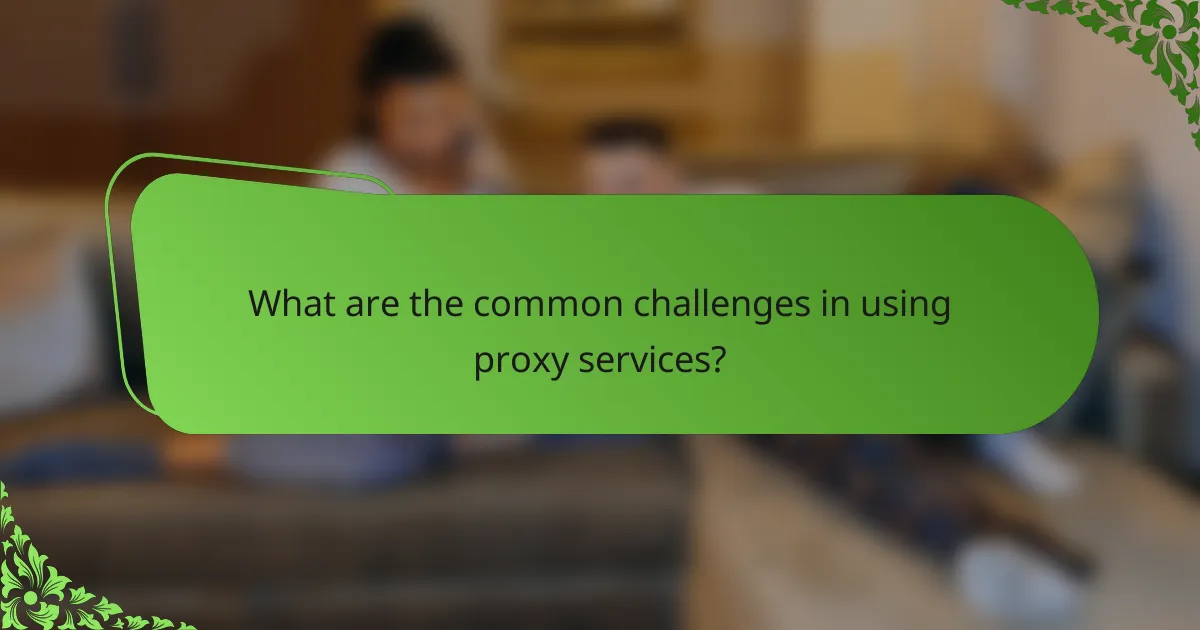
What are the common challenges in using proxy services?
Using proxy services for web scraping can present several challenges that may hinder efficiency and effectiveness. Key issues include IP bans, latency problems, and managing costs, all of which require careful consideration to optimize scraping operations.
IP bans
IP bans occur when a website detects and blocks requests from specific IP addresses, often due to suspicious activity or excessive scraping. To mitigate this, consider rotating IP addresses frequently and using residential proxies, which are less likely to be flagged.
Implementing rate limiting can also help avoid triggering bans. Aim to space out requests over time and mimic human browsing behavior to reduce the risk of detection.
Latency issues
Latency issues arise when there is a delay in data transfer between your server and the target website, which can slow down scraping operations. This can be influenced by the quality of the proxy service, network conditions, and the geographical distance to the target server.
To minimize latency, choose a proxy provider with high-speed connections and servers located close to the target website. Testing different proxies can help identify the fastest options for your specific needs.
Cost management
Managing costs is crucial when using proxy services, as prices can vary significantly based on the type of proxies and the volume of data scraped. Consider your budget and choose a pricing model that aligns with your scraping frequency and data needs.
Evaluate the trade-offs between dedicated and shared proxies. While dedicated proxies tend to be more expensive, they offer better performance and reliability, which can justify the higher cost for intensive scraping tasks.
